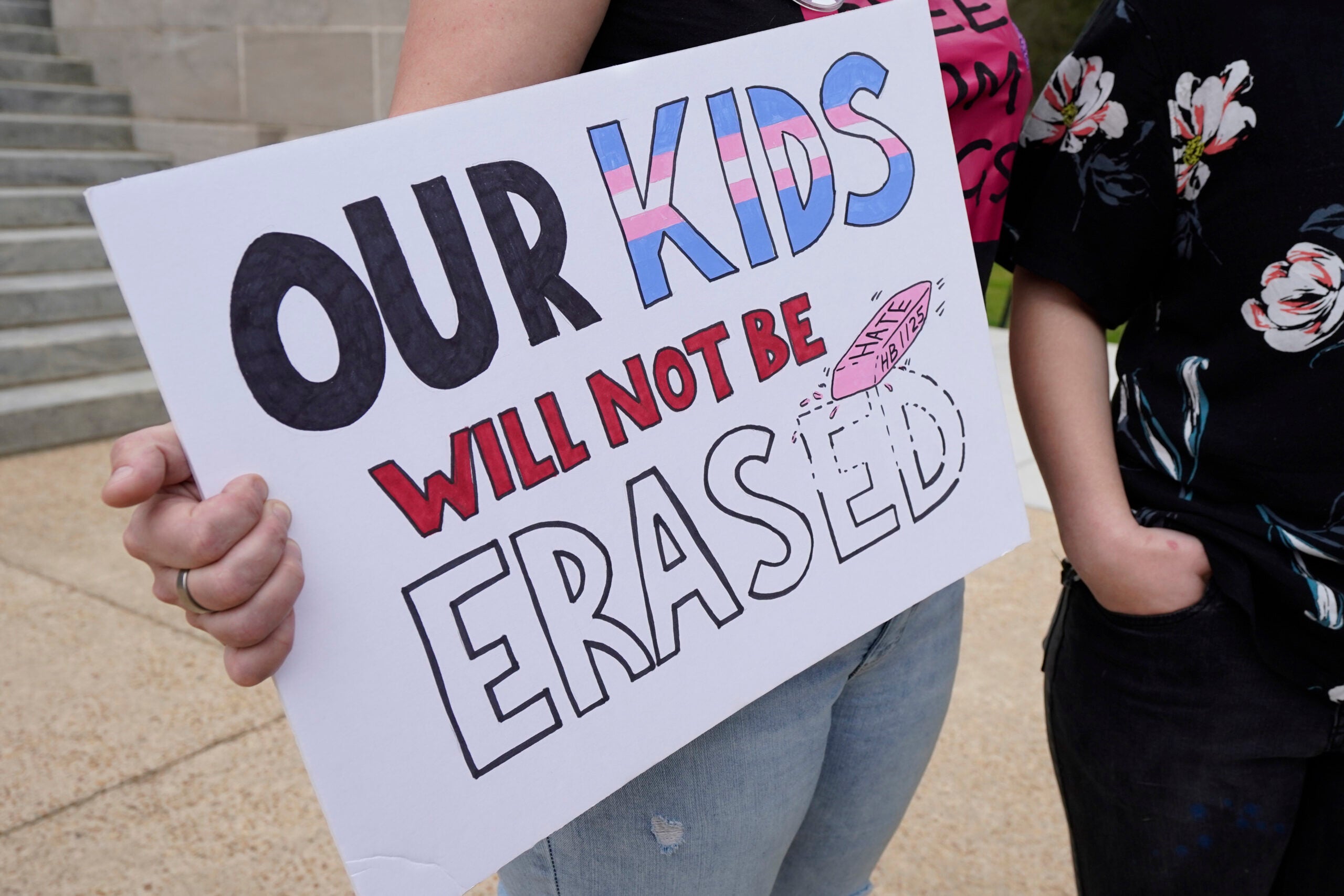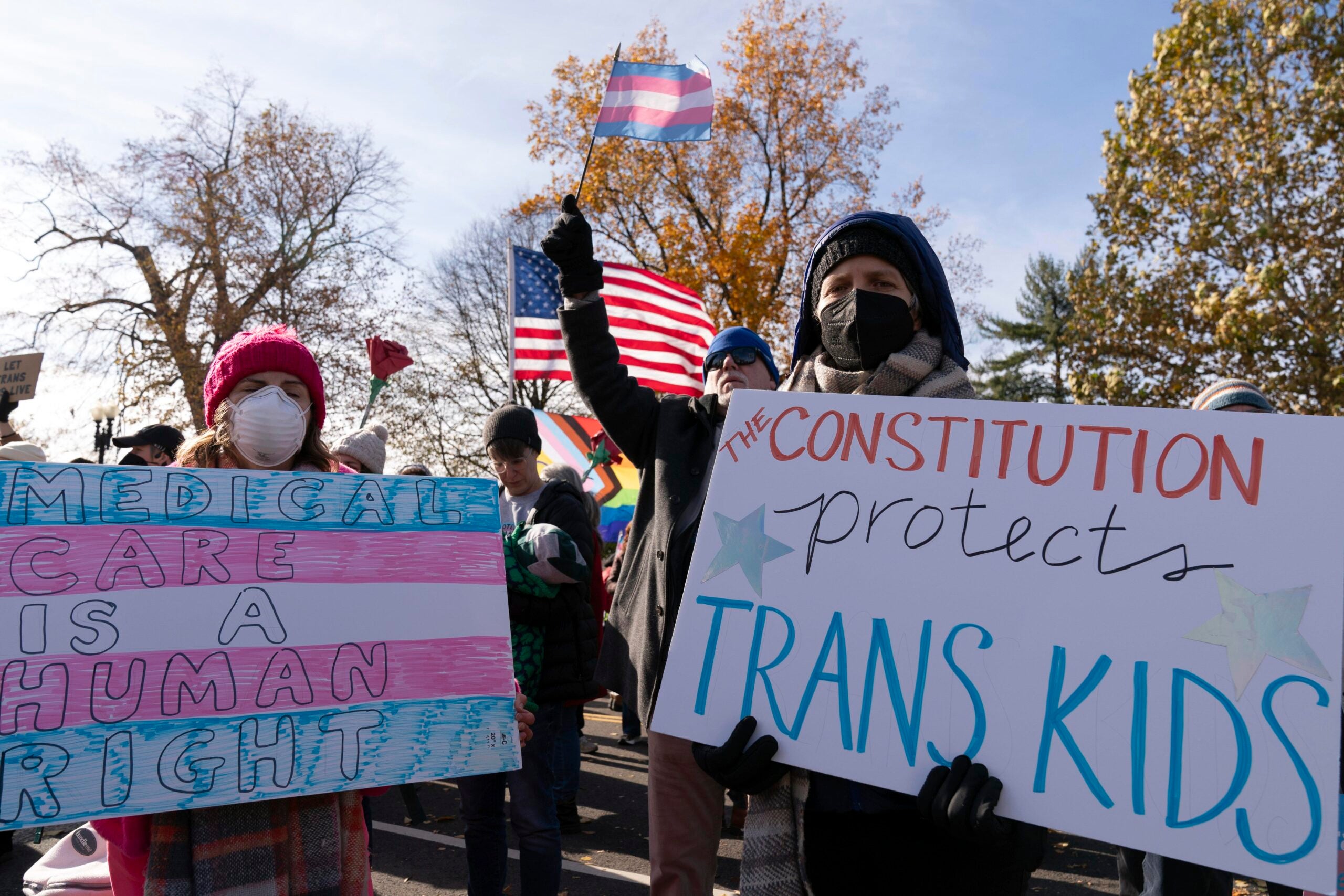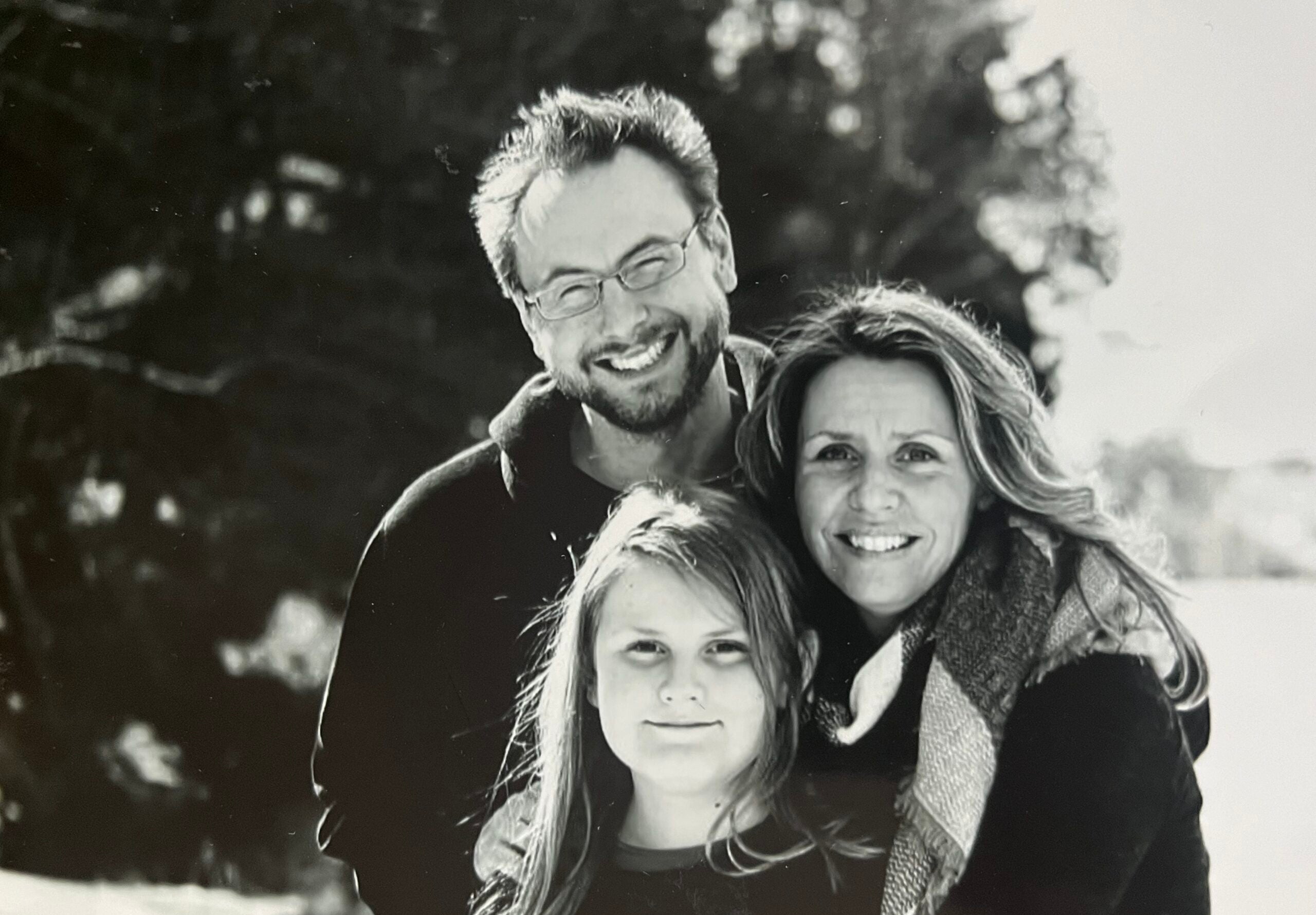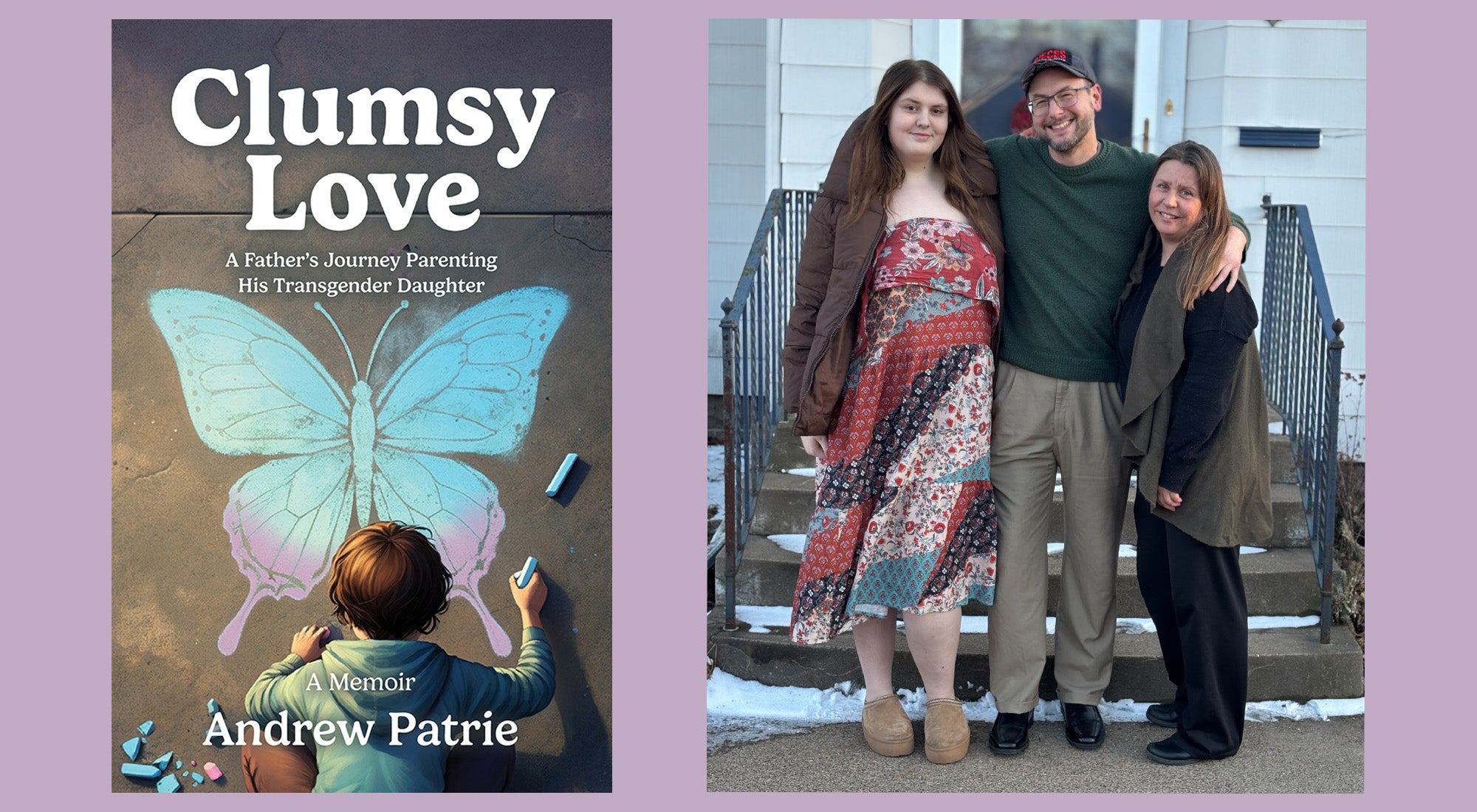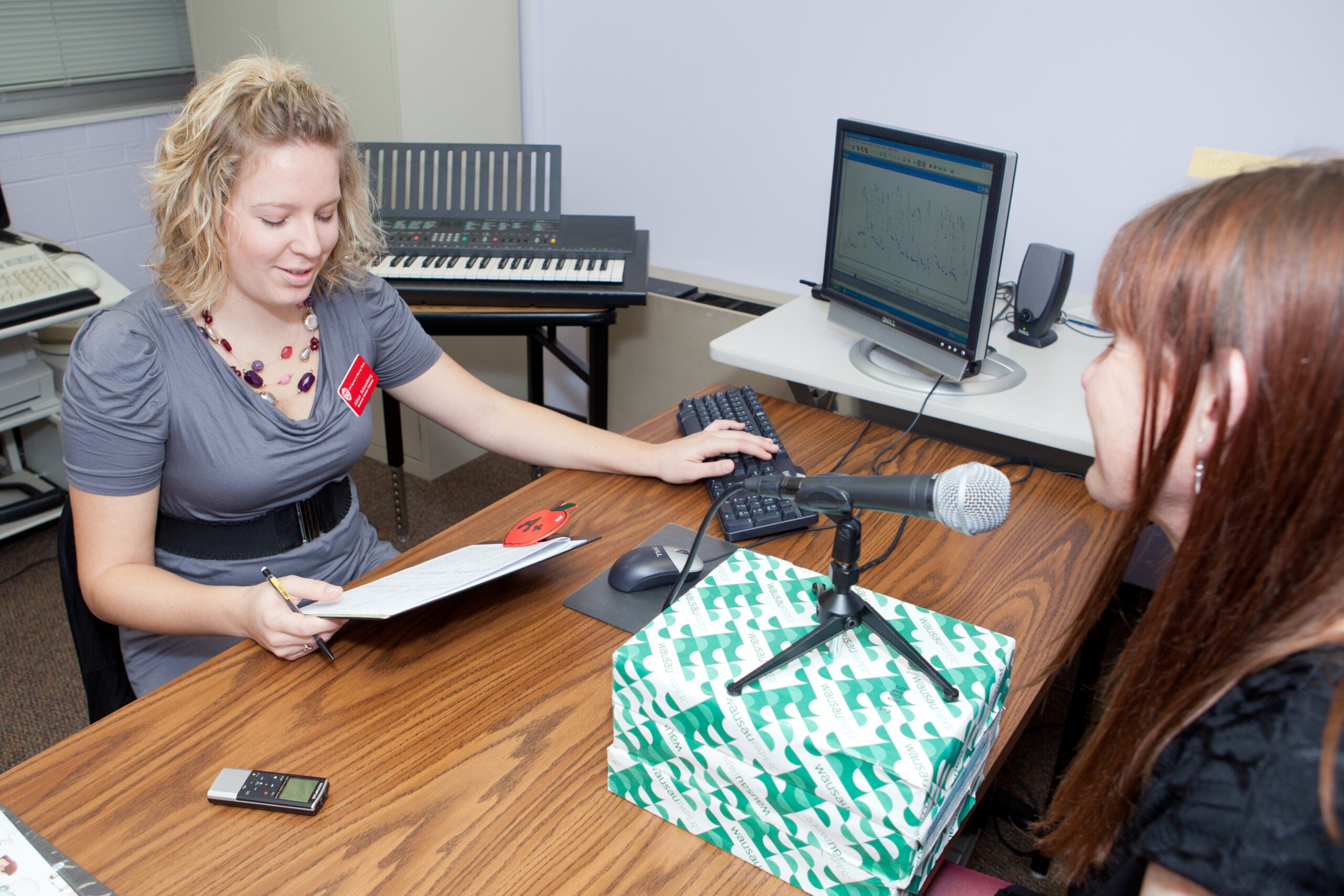When Tracey found out her child was transgender, she said she had a lot to learn.
Now, about seven years after her child transitioned, she has a lot to share.
The political climate compelled her to speak out, she said. Transgender people and specifically children have been the subject of more and more political debates in Wisconsin and across the country.
News with a little more humanity
WPR’s “Wisconsin Today” newsletter keeps you connected to the state you love without feeling overwhelmed. No paywall. No agenda. No corporate filter.
Tracey, who lives in Dane County, recently joined Wisconsin Public Radio’s “The Morning Show” to provide an in-depth look at what it has been like to be a parent to a transgender child in Wisconsin.
“It can be challenging because you don’t know what people think until they say something or until they react,” she said. “As a parent, you’re always scared.”
And she wasn’t alone — both on her family’s journey and on air. She was grateful for the help she received from PFLAG, a group that supports and advocates for LGBTQ+ people and their loved ones going back to its founding in 1973.
Also joining “The Morning Show” was Sue Huntenburg, a retired teacher and president of a Wisconsin chapter of PFLAG. She said the increasing amount of anti-trans legislation across the country is raising anxiety levels in parents and kids.
“Our biggest goal is to be present in our community,” she said.
The following from Tracey, who asked to be identified by first name only to protect her family’s privacy, was edited for brevity and clarity.
Kate Archer Kent: Going back to the beginning, how did you learn your child was transgender? What was that like?
Tracey: It was hard. It was a hard time. There was a lot to learn for me, even though I felt like I was pretty knowledgeable.
I had some people say to me, even once the transition happened, “Well, you always knew.” I guess I did know. But to really, truly have that moment in front of you, it felt a whole lot different when it was a reality as opposed to something that maybe could be.
It’s been hard as a parent, and really all you want is your child to be safe and happy, you know? And I will say that once the transition happened, the joy that came from them as they started to be their true, authentic self was worth every minute of it.
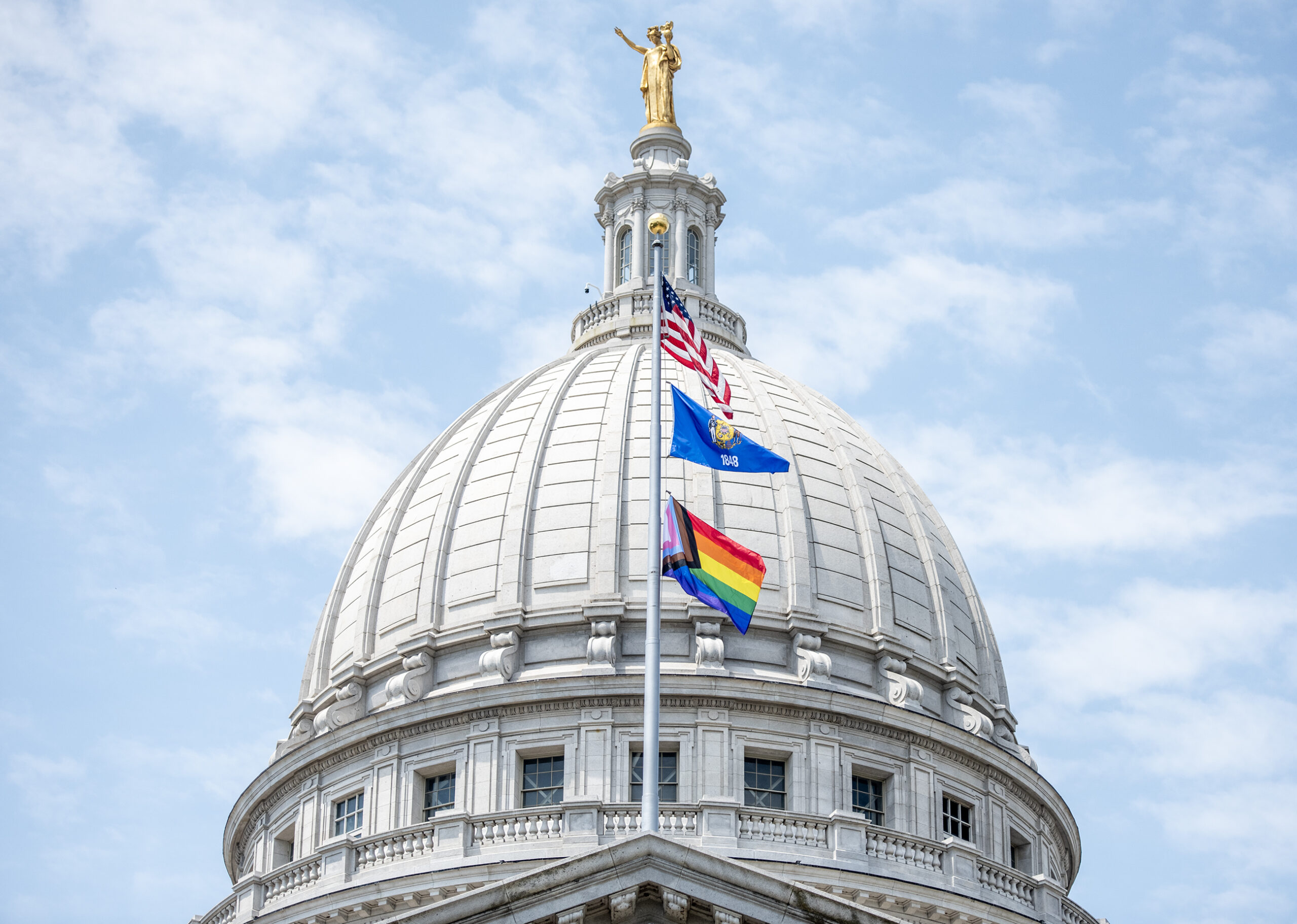
KAK: What have you done to help your child be their authentic self?
T: I was very fortunate because I had some good connections. So, I was able to get them into the (Pediatric and Adolescent Transgender Health Clinic at UW Health) at a very young age. That was a huge piece. We were able to get an amazing therapist right off the bat. Those were important pieces.
We were very limited in the beginning on who we wanted to tell, so we kept a very small circle. It started at the end of the seventh grade year, and then the eighth grade year was when we went public. My child transitioned really within the school. So, people knew (them) one way when they were in seventh grade and a different way when they were in eighth grade.
As far as trying to pave the path for my child (with what) was really important, (it was) listening, acknowledging and committing. I often described the experience as like being on a roller coaster. I’m in the back seat, I have no control and my child is pulling the levers. I know you can’t let your child totally go, but I had no idea what I was doing, and I had to let go of being a controlling mother and be the passenger on this journey with them.
READ MORE: Are transgender people happier after transitioning? Yes, many tell pollsters
KAK: How has PFLAG been helpful for you?
T: It has been extremely helpful. I’ve also been a member of a trans parent group. So I get support from that, as well. But having the local support has made a big difference. I say this all the time, but it’s just important to be present so members of the community can feel safe (and) they have someone to turn to.
And for me, it came along at the perfect time. It was right about the time that my child was transitioning. So, I met other families. There (have) been other people who have mentored (me) and hopefully I’ve been able to mentor others through their situations … There was a lot to learn, having other parents chime in and really give me points, help me grow and be a better — hopefully — parent.
KAK: Why is it important to share your family’s story?
T: Well, just the climate right now. It scares me sometimes to think about what’s happening to some of the children and families in other states. I don’t know how my story would have ended had we not had the care, support and community. My story could be an entirely different story.
It scares me when I find out or hear, I just don’t know. It really is hard to hear that families (are) struggling. I don’t know what I would have done if we had to go another state over. You know what? I would have. There wouldn’t have been a debate in my mind. I would have gone anywhere to make sure that my child got the care that they need.
But it’s scary. I know people get attacked. Parents have had letters sent to them. That’s scary to me. I think what really gets down in my soul is to question me as a parent for what’s best for my family. I don’t know how to process that when people think that maybe what I did or how I’ve handled this was wrong. It was right for me. It was right for my family, and I feel very strongly about that.
Wisconsin Public Radio, © Copyright 2026, Board of Regents of the University of Wisconsin System and Wisconsin Educational Communications Board.
